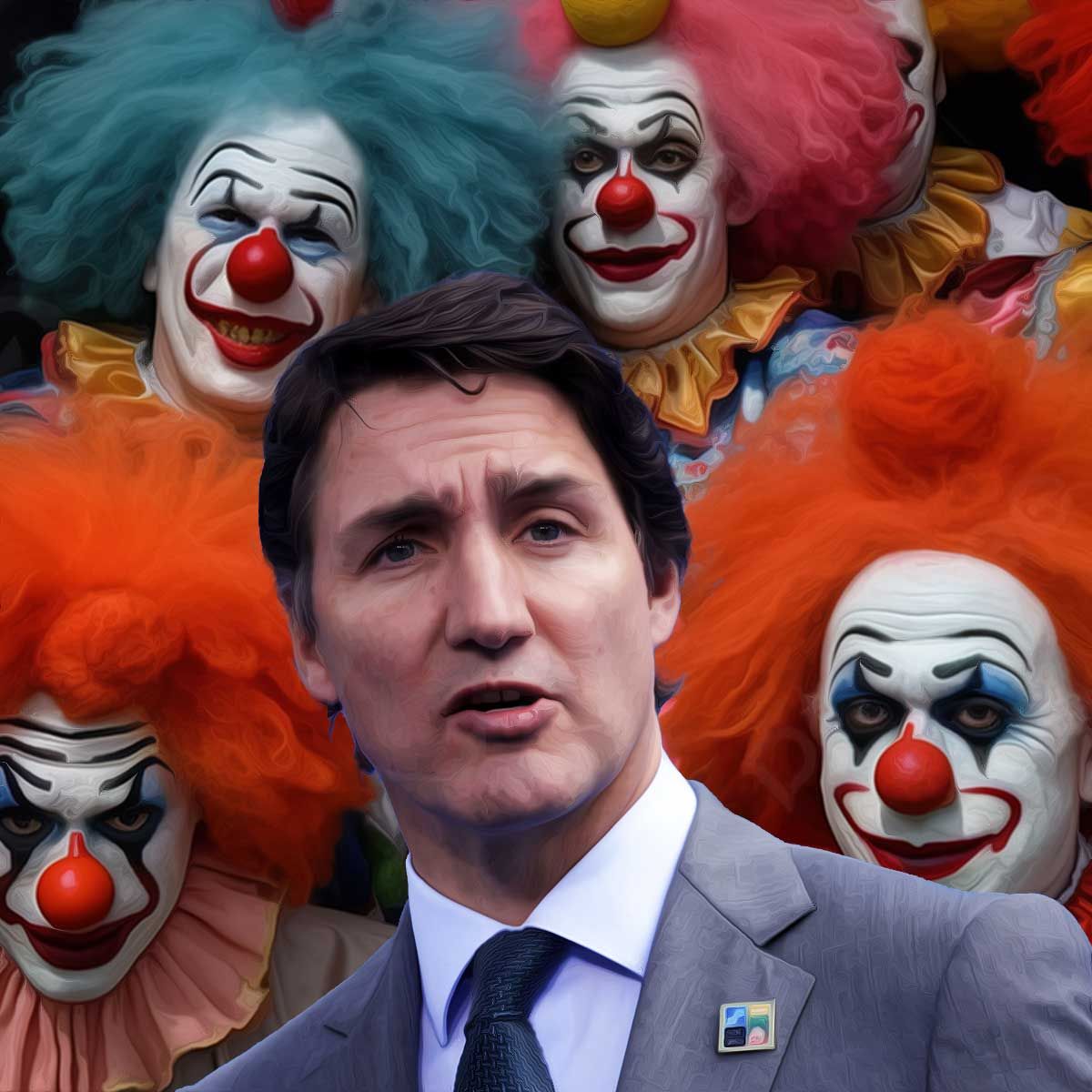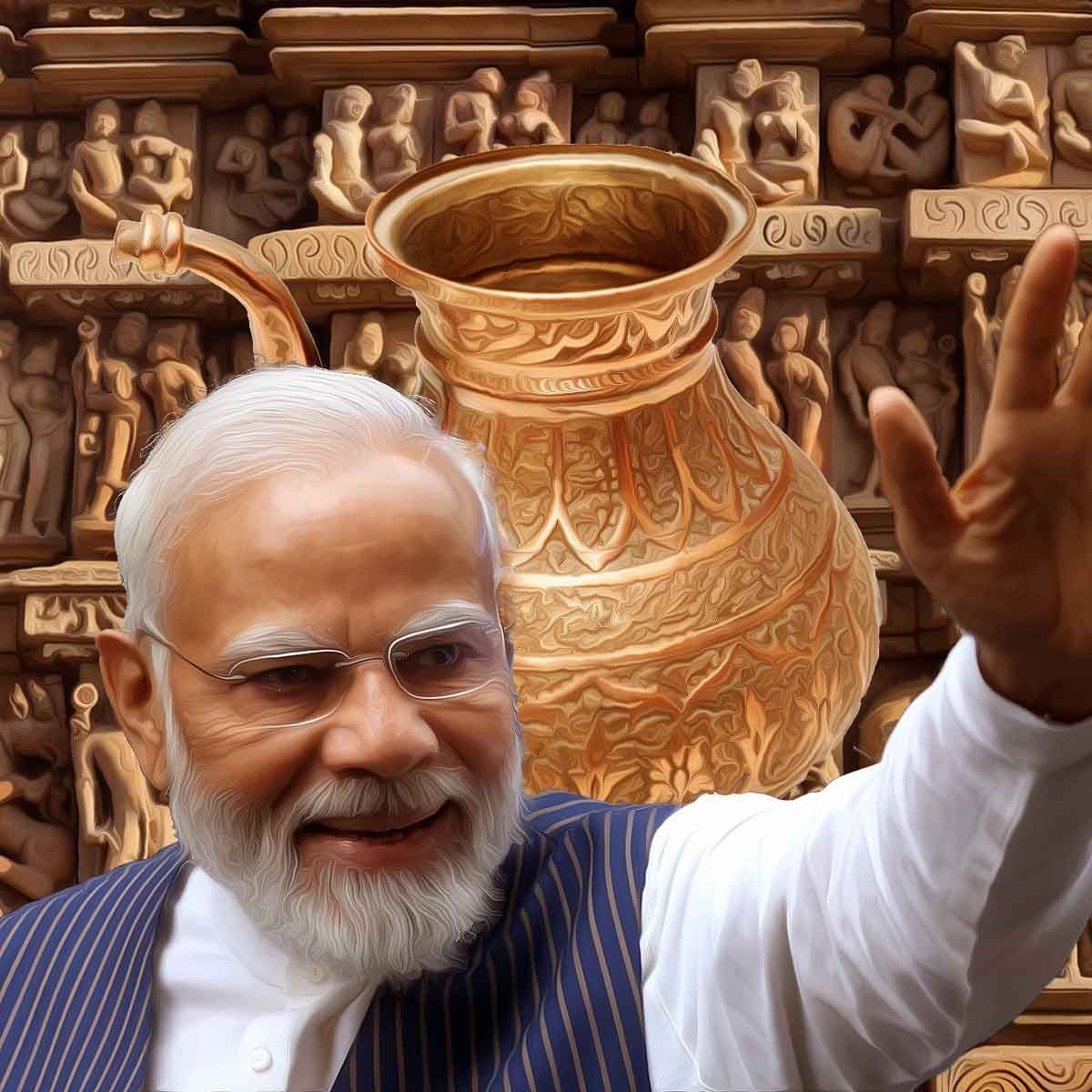MORE COVERAGE
Twitter Coverage
Satyaagrah
Written on
Satyaagrah
Written on
Satyaagrah
Written on
Satyaagrah
Written on
Satyaagrah
Written on
JOIN SATYAAGRAH SOCIAL MEDIA
Amidst Trudeau's allegations against India, Sri Lanka condemns Canada's double standards, highlighting Ottawa's controversial recognition of a Nazi veteran and its past accusations of 'Tamil Genocide', Canada's international image is under severe scrutiny

In a bold move, Sri Lanka voiced its support for India against the uncorroborated claims made by Canada that Indian operatives were involved in the assassination of Khalistani extremist Hardeep Singh Nijjar. The Foreign Minister of Sri Lanka, Ali Sabry, took a strong stance against Canada, stating, “Some of the terrorists have found safe haven in Canada. The Canadian PM has this way of just coming out with some outrageous allegations without any supporting proof.”
|
Furthermore, Ali Sabry didn't mince words when criticizing Canada's recent celebration of Nazi associates in the House of Commons. He expressed his disbelief and stated, “I saw yesterday he had gone and given a rousing welcome to somebody who associated with the Nazis during the Second World War.”
Such forthright statements from a high-ranking official reflect growing concerns about Canada's seemingly inconsistent stance on international matters. The remarks serve as a reminder that nations are paying close attention to Canada's actions and are prepared to call them out when necessary.
|
Sri Lanka, while remembering past allegations, highlighted the historical criticism it faced from Canada. Ali Sabry brought up Canada's controversial claims of a genocide in Sri Lanka, saying, “The same thing they did for Sri Lanka, a terrible, total lie about saying that Sri Lanka had a genocide. Everybody knows there was no genocide in our country.” The Foreign Minister went on to comment on PM Trudeau's penchant for making wild accusations, “I am not surprised that sometimes PM Trudeau comes out with outrageous and substantiated allegations.”
Earlier, in May 2023, Canada and Sri Lanka locked horns when the former leveled allegations of a 'Tamil Genocide'. Responding swiftly, Sri Lanka had summoned the Canadian High Commissioner to lodge a robust protest against Prime Minister Justin Trudeau's statements. Trudeau had highlighted the tragic loss of life during the violent confrontations between the Sri Lankan military and the Liberation Tigers of Tamil Eelam (LTTE). This prolonged conflict, which sought to establish a separate homeland for the Tamil minority, spanned from 1983 and culminated in May 2009 with the demise of LTTE leader Velupillai Prabhakaran.
Justin Trudeau's statement reflected deep concern and empathy, “Our thoughts are with the victims, survivors, and their loved ones, who continue to live with the pain caused by this senseless violence. The stories of Tamil Canadians affected by the conflict... serve as an enduring reminder that human rights, peace, and democracy cannot be taken for granted. That’s why Parliament last year unanimously adopted the motion to make May 18 Tamil Genocide Remembrance Day... Canada will not stop advocating for the rights of the victims and survivors of this conflict, as well as for all in Sri Lanka who continue to face hardship.”
While Trudeau's words exhibit sympathy, the enduring tension between the two nations underscores the complexity of global politics and the perils of passing judgments without comprehensive understanding.
Sri Lanka High Commissioner to India supported India saying, "India's response is firm, we support India...we suffered from terrorism..zero tolerance for terrorism," on Canada's allegations on India.
|
Sri Lanka has firmly rejected Prime Minister Trudeau's claims regarding the alleged 'Tamil Genocide'. The foreign ministry of Sri Lanka minced no words in its response, “Such irresponsible and polarising pronouncements by the leader of a nation breeds disharmony and hatred both in Canada and Sri Lanka, instead of promoting peace and reconciliation.” This firm response serves as a potent reminder of the lingering sensitivities surrounding the topic and the need for global leaders to tread with caution when addressing international conflicts.
In a separate and equally contentious issue, Canada's stance on international matters came under the microscope once again. On 22nd September, the Canadian House of Commons raised eyebrows globally when it gave a standing ovation to Yaroslav Hunka, a 98-year-old former Nazi soldier. The recognition of Hunka, who had fought against the Russians during World War II, has ignited controversies due to his allegiance to a notorious SS unit, the 14th SS-Volunteer Division "Galicia", established in 1943 by the Nazis. Furthermore, the presence of Ukrainian President Volodymyr Zelenskyy during the ovation added to the complexity of the situation.
The Schutzstaffel (SS) played a pivotal role as the primary paramilitary arm under Adolf Hitler's regime and the Nazi Party. Most infamously, the SS orchestrated the operations of the Holocaust. The fact that the 14th SS-Volunteer Division "Galicia" was composed of volunteers only compounds the controversy. This means that Yaroslav Hunka willingly joined this SS division and was not drafted against his will.
|
Canada's contradictory actions — condemning perceived human rights abuses in one instance while celebrating a member of a Nazi unit — underscore the nation's convoluted stance on global issues and further fuel questions regarding its international relations strategy.
Prime Minister Trudeau's allegations against India have sparked a global diplomatic rift, bringing to light underlying tensions that have simmered beneath the surface for some time. On 19th September, Trudeau made the audacious claim that India was responsible for the killing of Khalistani terrorist Hardeep Singh Nijjar on Canadian soil. In a swift and decisive response, a senior Indian diplomat was expelled by the Canadian government. However, these claims didn't sit well with Canada's allies, who refrained from joining in a unified statement against India.
|
India's retaliation was swift and unequivocal. A Canadian diplomat was expelled from India, marking a distinct chill in diplomatic ties. Furthermore, India implemented visa restrictions for Canadian citizens. Trade talks, which often serve as a barometer of bilateral relationships, were also promptly halted between the two nations.
Indian authorities shed light on the matter by disclosing that they had furnished Canada with evidence of criminals and terrorists operating within Canadian boundaries. This wasn't the first time India had sounded the alarm over increased Khalistani activities in Canada. One stark example includes Khalistani terrorist Gurpatwant Singh Pannun, who was openly seen in Canada advocating for a Khalistani referendum. Ironically, at the same time, Trudeau was present in India, attending the G20 Summit.
A surprising revelation also emerged when it became public knowledge that Hardeep Singh Nijjar was featured on the US No Fly list and TSA. This revelation raises serious concerns and questions about Canada's stance on global terrorism. Why has Canada become a sanctuary for designated terrorists and organized crime figures? The Ministry of External Affairs (MEA) brought this pressing issue to the forefront in a recent statement.
The ongoing strife between Canada and India serves as a poignant reminder of the complex intricacies of international relations. While countries navigate their domestic and international concerns, the actions and reactions of nations on the world stage have profound implications, affecting alliances, trade relations, and the broader global narrative.
 Support Us
Support Us
Satyagraha was born from the heart of our land, with an undying aim to unveil the true essence of Bharat. It seeks to illuminate the hidden tales of our valiant freedom fighters and the rich chronicles that haven't yet sung their complete melody in the mainstream.
While platforms like NDTV and 'The Wire' effortlessly garner funds under the banner of safeguarding democracy, we at Satyagraha walk a different path. Our strength and resonance come from you. In this journey to weave a stronger Bharat, every little contribution amplifies our voice. Let's come together, contribute as you can, and champion the true spirit of our nation.
 |  |  |
| ICICI Bank of Satyaagrah | Razorpay Bank of Satyaagrah | PayPal Bank of Satyaagrah - For International Payments |
If all above doesn't work, then try the LINK below:
Please share the article on other platforms
DISCLAIMER: The author is solely responsible for the views expressed in this article. The author carries the responsibility for citing and/or licensing of images utilized within the text. The website also frequently uses non-commercial images for representational purposes only in line with the article. We are not responsible for the authenticity of such images. If some images have a copyright issue, we request the person/entity to contact us at satyaagrahindia@gmail.com and we will take the necessary actions to resolve the issue.
Related Articles
- "In the corridors of espionage, clarity is elusive": Sources shed light on Pakistan's ISI's alleged orchestration of terrorist Hardeep Nijjar's assassination in Canada, pointing to his resistance against supporting newly-arrived gangsters backed by ISI
- "Separate we come, and separate we go, And this be it known, is all that we know": India deeply objects to politically motivated “farcical exercise” in name of a referendum carried out by Khalistanii elements in Canada, matter taken up with authorities
- Trudeau leverages Khalistan narrative against India with US intelligence backing. SFJ's G.S Pannu, with dual US-Canada citizenship, incites against Indian diplomats, leading to speculations about potential CIA ties as shared by India's intelligence head
- "From Father to Son: A Troubling Legacy": In a sinister echo of the past, Canadian PM Trudeau openly endorses Khalistani elements against India, uncovering the dark history of Pierre Trudeau shielding notorious Kanishka bombing mastermind Talwinder Parmar
- "आइस-पाईस": Canadian police admits it's a safe haven for Khalistanis, blaming the Lawrence Bishnoi gang for violence, Trudeau accuses India of Nijjar's murder, while WaPo targets Amit Shah, both nations expel diplomats in a growing political standoff
- Justin Trudeau, who admitted past marijuana use, denies 'credible rumors' from ex-Indian diplomat Deepak Vohra of his plane carrying cocaine in India, Trudeau missed G20 dinner and stayed secluded for two days, possibly high on drugs
- "Face the future, say 'bring it on'": NIA lists 43 top criminals, including Canada-based with Khalistani ties, as tensions rise, Trudeau implicates India in Nijjar's Canada murder; India promptly refutes, calling the accusation 'absurd and motivated'
- Sukhdool Singh, a notorious gangster listed by NIA assassinated in Canada, highlighting the growing web of Punjab's criminals overseas, as India's concerns rise, the spotlight turns to Canada's stance on sheltering such elements from Punjab's underworld
- "Turbulence tests the strength of community bonds": Hindu temple in Canada faces vandalism by Khalistan supporters, spotlighting escalating tensions after Khalistani activist Hardeep Singh Nijjar's death, What's next for the Hindu community abroad
- India hits back, revealing a Canadian Border officer's role in aiding Khalistani terrorists and ISI in the murder of Sikh activist Balwinder Singh Sandhu, as Trudeau accuses Indian diplomats of killing terrorist Hardeep Singh Nijjar, escalating tensions
- Sikhs for Justice accused Russia of aiding India’s RA&W in killing Khalistani terrorist Nijjar; Russia denied claims, called SFJ’s $25K reward for tracking diplomats unacceptable, sought law enforcement action, and protection under Vienna Convention laws
- Amid rising tensions, Sikhs and Hindus held an anti-Justin Trudeau protest at the Canadian Embassy in Delhi over attacks on Hindu temples by Khalistanis, Trudeau acknowledged Khalistani presence as India-Canada relations worsen after Nijjar's killing
- "Nations stand tall when they stand firm": Amid soaring India-Canada tensions, India strikes a decisive blow against Khalistanis, seizing assets of Sikhs For Justice chief Gurpatwant Singh Pannun & Hardeep Singh Nijjar, reshaping geopolitical landscape
- "Canada National Sport - The Blame Game": Indian High Commissioner challenges Canada's 'conviction' of India in Nijjar case, emphasizing the importance of a thorough & conclusive investigation before drawing conclusions in international diplomatic affairs
- "Life deals you a lot lessons, some people learn from it, some people don't": Notorious Khalistani terrorist & radical separatist Hardeep Singh Nijjar shot dead within the premises of the Guru Nanak Sikh Gurdwara Sahib in Surrey, British Columbia, Canada

























